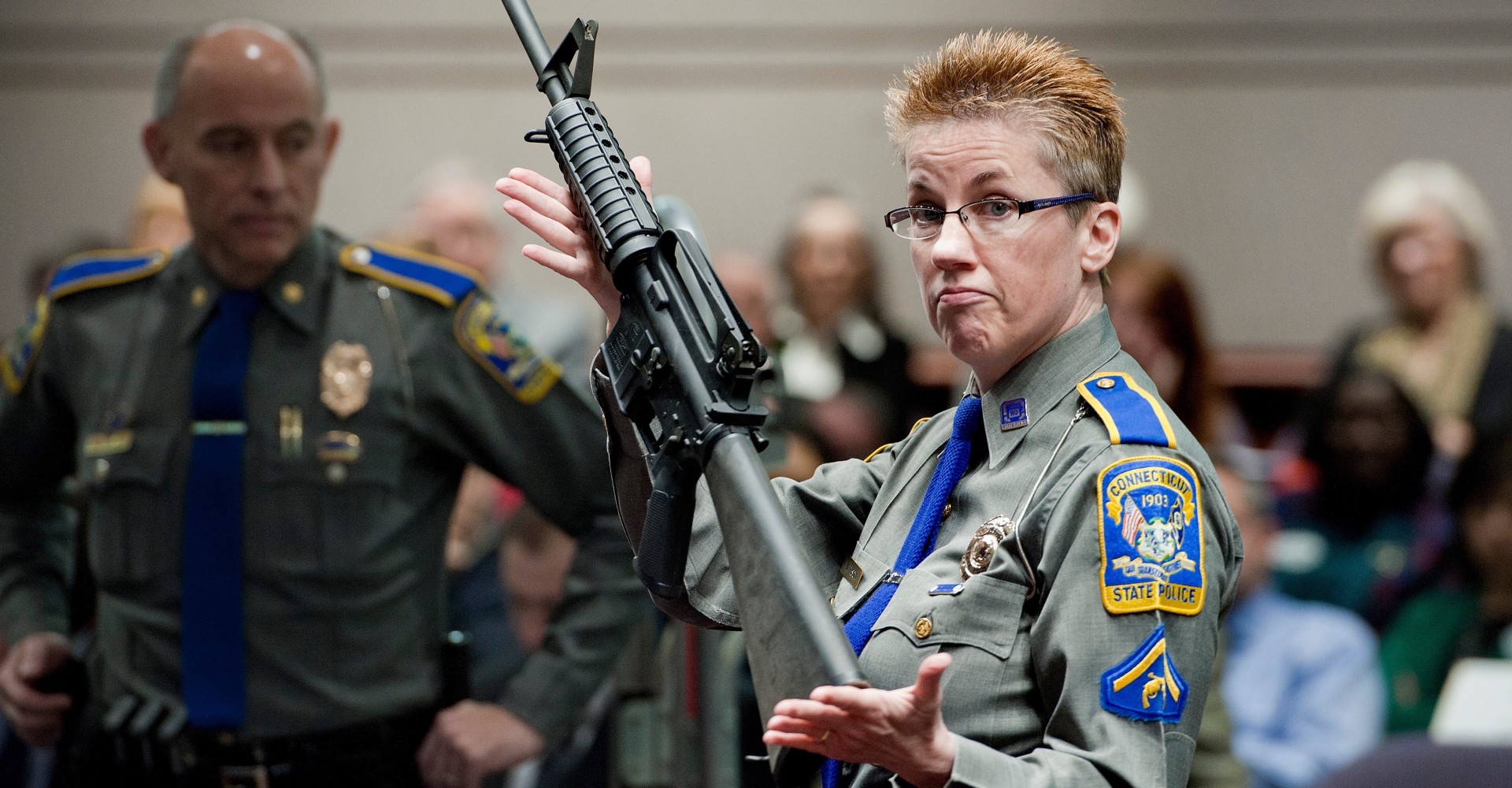Families of victims killed in the Sandy Hook Elementary School massacre have agreed to a $73 million settlement with Remington Arms. The agreement heralds the final chapter of a nearly eight-year legal saga that has provided a template for successfully suing the gun industry.
Remington — which made the Bushmaster XM15-E2S semiautomatic rifle used in the shooting — will allow the families to make public thousands of internal marketing documents handed over by the company as part of discovery. But the gunmaker will no longer have to comply with a February 17 deadline for releasing additional documents that could have shed further light on its practices.
Lenny Pozner and Veronique De La Rose, whose 6-year-old son, Noah, was one of 26 people killed during the shooting, said in a news release that the settlement was neither redemptive nor restorative. “What is lost remains lost. However, the resolution does provide a measure of accountability in an industry that has thus far operated with impunity.”
Lawyers for Remington did not immediately respond to requests for comment.
The families’ suit, filed in 2015, accused Remington of violating a Connecticut law against deceptive trade practices by intentionally marketing its weapons to young, unstable males. The company’s ads touted the use of Remington rifles in military combat and presented them as badges of masculinity. “Consider Your Man Card Reissued,” went the tagline in one ad. The families alleged that these tactics inspired the 20-year-old gunman to attack the elementary school in December 2012.
Remington contended that its advertising did not target at-risk youth in particular and that no evidence connected their marketing strategies to the Sandy Hook shooting.
This is only the second time in the past 22 years that a major gun manufacturer has settled a lawsuit over shootings committed with its guns — and one of the only cases to win a payout for victims. In 2000, Smith & Wesson settled lawsuits filed by 15 U.S. cities by agreeing to make changes to how it designed and distributed weapons. The agreement led to a massive industry and consumer backlash, which drove Smith & Wesson to the brink of ruin.
To date, no lawsuit has ever resulted in a jury finding a major gunmaker liable for a mass shooting. This is largely because of the Protection of Lawful Commerce in Arms Act, which Congress passed in 2005 to shield gunmakers from legal claims stemming from crimes committed with their products. The Sandy Hook case is one of only a few suits to have ever bypassed PLCAA’s protections, satisfying a narrow exception in the law that allows for claims when gun companies violate relevant state or federal laws. A Connecticut court rejected Remington’s argument that the case should be dismissed because of PLCAA, and in November 2019, the U.S. Supreme Court declined to hear the gunmaker’s appeal of that decision.
In June 2021, New York passed a law classifying the unlawful or improper marketing or sale of firearms as a public nuisance, exposing gunmakers to similar lawsuits in that state. Jake Charles, director of Duke University’s Center for Firearms Law, said the change in New York demonstrated the lasting impact of the Sandy Hook families’ legal strategy.
“Some might consider it a loss for the gun violence prevention movement that this case is not going to trial,” Charles said. “But now that it’s closed, the suit stands as precedent — future lawsuits can cite it as proof of a legal avenue through the gun industry’s legal immunity.”
Remington was auctioned off in 2020 after filing for bankruptcy for the second time in two years. According to the Sandy Hook families’ attorney, the company’s insurance carriers will be responsible for paying the entirety of the settlement, which is for the maximum amount they were contracted to provide. The agreement more than doubles a previous settlement offer that the families refused “because they wanted to ensure they had obtained enough documents and taken enough depositions to prove Remington’s misconduct,” the news release states.
The settlement leaves just a handful of surviving lawsuits against gunmakers. In 2020, a Pennsylvania Superior Court ruled PLCAA unconstitutional in a case brought against Springfield Armory after one of its pistols was involved in the accidental shooting death of a child. The state’s Supreme Court has yet to review that decision. In Indiana, the city of Gary has reached discovery in its suit that accuses Smith & Wesson and a number of other large gun manufacturers of creating and facilitating a public nuisance of gun violence in the city in the ’90s.
Most recently, the Mexican government filed suit against Smith & Wesson and a number of other major gunmakers in a bid to hold American gun companies accountable for firearm violence in Mexico. A judge has yet to rule on whether PLCAA will apply.

